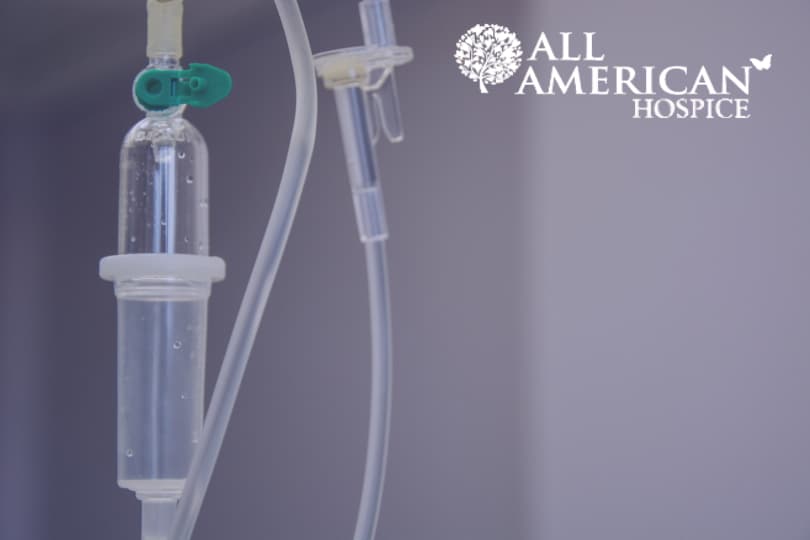Table of Contents

Have you heard stories about a mysterious phenomenon where a person with a severe illness suddenly regains their consciousness, memory, strength, and communication skills? This event that has caused confusion and given false hope to many families, medical professionals, and caregivers is called terminal lucidity. Although the exact causes remain uncertain, families and caregivers should be aware of and understand the terminal lucidity.
In this article, you will learn what, who experiences terminal lucidity, and how long can an end-of-life rally last. We’ll also discuss the terminal lucidity symptoms and their effects on the family to prepare you for the possibility of this happening to your loved ones.
What Is Terminal Lucidity?
Terminal lucidity is when patients with severe psychiatric and neurologic disorders regain their mental clarity, strength, and memory before death. It’s also known as an end-of-life rally, and people usually describe it as “waking up” or “getting back” their loved ones temporarily.
Other than a few case studies and personal stories, there is not enough evidence to prove and know what causes it. Because of this, many still question whether it’s real, spiritual, or just a supernatural experience.
A popular end-of-life rally article explains that when patients stop their treatments with toxic effects like chemotherapy, their brain becomes responsive. This is why terminal lucidity dementia moments are common in hospice or nursing homes. Spiritual because many believe that a patient only “wakes up” to finish their unfinished work, such as making last wishes, saying goodbye, waiting for someone to visit them, or asking and giving forgiveness.
Terminal Lucidity: How Long before Death?
How long can the end-of-life really last? The answer is that it depends. In some cases, rallying before death lasts a couple of hours, days, or weeks. Sometimes it lasts up to months, enough to allow patients to leave the hospital or hospice.
The terminal lucidity dementia and “paradoxical lucidity” are the same. A case study of 49 cases of end-stage dementia shows that 43% of the patients experienced PL a few hours before death. It’s followed by 2 to 7 days at 41%, and only 10% of cases show terminal lucidity occurs 8 to 30 days before death.
Patients Who Experience Rallying before Death
Other than dementia patients, rabies and infections, end-of-life rally also occurs in the following diseases.
- Affective disorders
- Alzheimer’s disease
- Brain Tumors
- Meningitis
- Parkinson’s disease
- Schizophrenia
- Stroke
Terminal Lucidity Symptoms
It’s difficult to say how long an end-of-life rally can last because it varies according to the condition of the patient and the disease they have. Also, not everyone with a severe illness may experience it. But most of them have similar symptoms, such as:
- Requesting an odd or the patient’s favorite food or object
- Recognizing or looking for a family member or friend
- Physical symptoms are less severe
- Becomes more verbal and has a cheerful mood
- Looking back on special memories or when they were young
- Seeing or talking with a deceased person, religious figures, or pets
- Unexplainable sensory experiences such as seeing the light or hearing sounds
- A sudden conversation about traveling or preparing to travel alone
- Predicting the exact time of death
Impact of Terminal Lucidity on the Patient’s Family
Due to lack of evidence and knowledge, when terminal lucidity symptoms occur, its often interpreted that the patient is recovering. Because of high expectations, the bereaved take more time and pain to accept the loss of their loved one. To prevent this, here are things every family member should do when terminal lucidity occurs in a seriously ill loved one.
- Educate other family members and friends about terminal lucidity.
- Help the patient heal spiritually and fulfill the patient’s final wishes.
- Make their loved ones more comfortable in their last days
- Always stay with the patient during moments of terminal lucidity.
- When rallying for death occurs, the family should consider it as a gift.
- Appreciate and enjoy the remaining time with your loved one.
- Be prepared and learn to accept the departure of your loved one.
Get Attentive Care From All American Hospice
You have learned the basics and become more aware of end-of-life rallies. Understanding its symptoms and process will help you cope with emotional challenges and prepare yourself for the passing of your loved one. When a patient’s condition worsens, such as end-stage dementia, it will require more attentive care that only you or full-time caregivers can provide.
All American Hospice believes whether it’s you or your loved ones who need support, no one should be alone. Our home palliative care services focus on preventing or relieving physical and psychological sufferings like when terminal lucidity happens. With our added support, your family and the patient will have more time together. If you have questions about terminal lucidity or other services, just call our hotline, and we’ll be happy to help you.

 215-322-5256
215-322-5256
Comments are closed.